Table of Contents
What is Vegetable Soup Seasoning?
Vegetable soup seasoning is a blend of dried herbs and spices specifically formulated to enhance the flavor of vegetable soups. It typically includes ingredients like garlic powder, onion powder, thyme, oregano, and paprika, which work together to create a savory, aromatic base for your soup. This seasoning is essential for bringing out the natural flavors of vegetables, adding depth and complexity to your dishes without overpowering them.
Whether you're a seasoned chef or a kitchen novice, understanding how to use vegetable soup seasoning properly can transform your soups from good to extraordinary. In this guide, we'll explore everything you need to know about this essential ingredient, including its benefits, how to use it, and how to choose the best options for your needs.
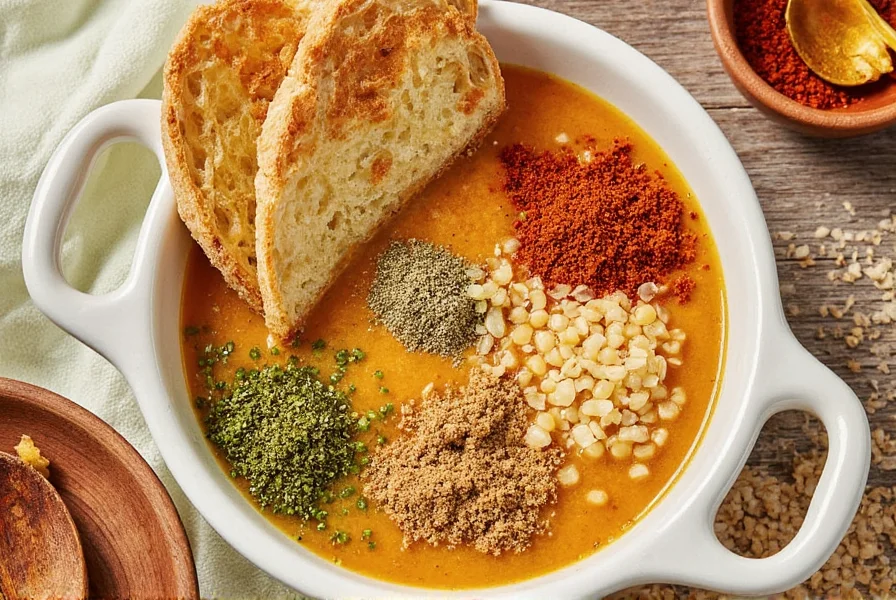
Why Vegetable Soup Seasoning Matters
Many people overlook the importance of seasoning when it comes to vegetable soup. While vegetables have natural flavors, the right seasoning elevates the dish by creating balance, complexity, and harmony in taste. Vegetable soup seasoning isn't just about adding flavor—it's about enhancing the inherent qualities of the vegetables themselves.
Here's why using the right vegetable soup seasoning is crucial:
- Flavor Enhancement: Vegetables often have subtle flavors that benefit from complementary seasonings to become more pronounced and enjoyable.
- Consistency: Using a consistent seasoning blend ensures your soups have reliable flavor profiles every time you cook.
- Time Efficiency: Pre-mixed seasonings save you from measuring individual spices, making soup preparation faster and easier.
- Nutritional Benefits: Many herbs and spices in vegetable soup seasonings contain antioxidants and anti-inflammatory properties that add health benefits beyond flavor.
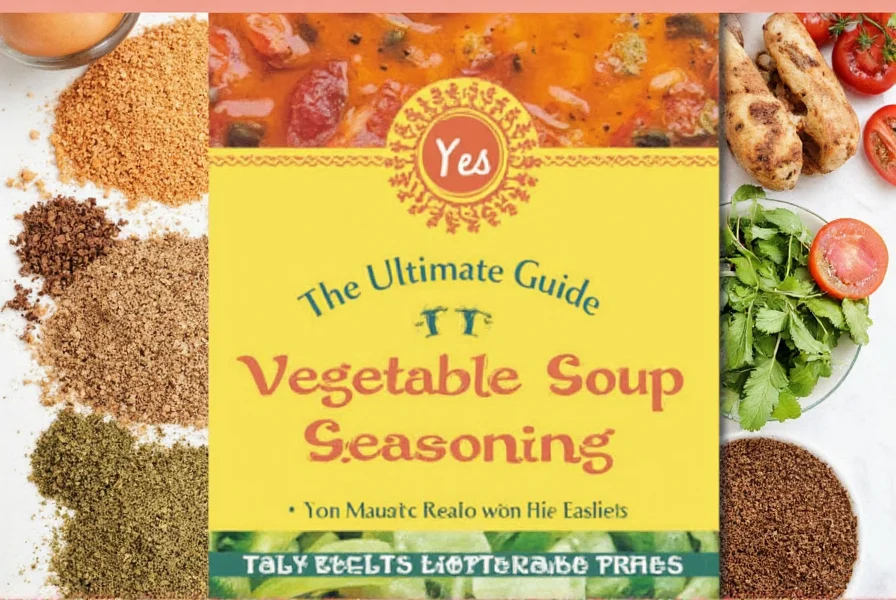
Key Ingredients and Their Roles
To maximize the flavor of your vegetable soup, understanding the role of each ingredient in your seasoning blend is essential. Here's a breakdown of common components and how they interact with different vegetables:
| Spice/Herb | Flavor Profile | Best Vegetable Pairings | Why It Works |
|---|---|---|---|
| Garlic Powder | Savory, pungent | Carrots, potatoes, onions | Enhances savory notes and adds depth without raw garlic's sharpness |
| Onion Powder | Sweet, sharp | Peas, corn, bell peppers | Provides natural sweetness that balances acidic vegetables like tomatoes |
| Thyme | Elegant, earthy | Tomatoes, zucchini, mushrooms | Complements earthy vegetables and adds subtle herbal complexity |
| Oregano | Bold, slightly peppery | Cabbage, broccoli, cauliflower | Stands up to stronger-flavored vegetables without overpowering |
| Paprika | Smoky, slightly sweet | Beets, squash, sweet potatoes | Adds warmth and color while complementing root vegetables' natural sweetness |
| Bay Leaf | Woodsy, slightly floral | Root vegetables, lentils, beans | Provides subtle background notes that enhance overall complexity |
These ingredients work together to create a rich, layered flavor that complements the vegetables without overwhelming them. The key is to balance the components based on the specific vegetables in your soup.
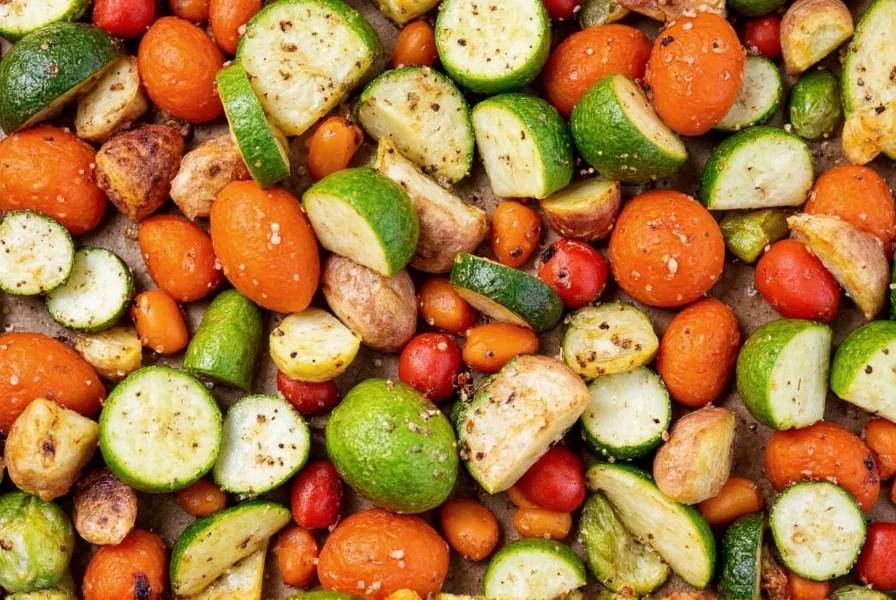
Practical Usage Tips
Using vegetable soup seasoning effectively requires understanding when and how to add it for optimal flavor. Here are proven techniques:
- Timing Matters: Add seasoning early in the cooking process (when sautéing vegetables) to allow flavors to meld, but avoid adding salt-based seasonings too early if using low-sodium broth.
- Start Small, Taste Often: Begin with 1 teaspoon per quart of soup. You can always add more, but you can't remove excess seasoning once added.
- Adjust for Vegetable Type: Heartier vegetables like potatoes and carrots often need more seasoning (1.5 teaspoons per quart), while delicate vegetables like spinach may only need 0.5 teaspoon per quart.
- Combine with Fresh Herbs: For maximum freshness, add dried seasonings early in cooking and fresh herbs like parsley or basil during the last 5 minutes.
- Consider Broth Quality: High-quality vegetable broth enhances seasoning effectiveness. If using low-quality broth, increase seasoning slightly to compensate.
- Make Your Own Blend: Create custom blends by mixing 1 part garlic powder, 1 part onion powder, 1 part dried thyme, 1 part dried oregano, and 0.5 part paprika. Store in an airtight container for up to 6 months.
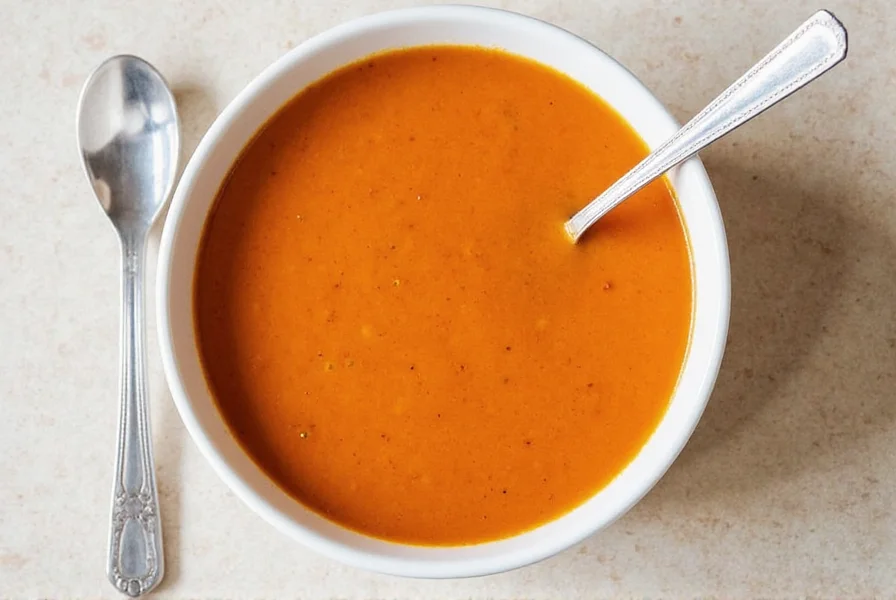
How to Choose the Right Seasoning
When selecting vegetable soup seasoning, consider these factors rather than specific brand recommendations:
- Ingredient Quality: Look for blends with whole spices rather than fillers or artificial additives. The ingredient list should be short and recognizable.
- Salt Content: If watching sodium intake, choose low-sodium or no-salt-added options. You can always add salt separately to control levels.
- Flavor Profile: Match the seasoning to your soup style—Mediterranean blends work well with tomato-based soups, while Asian-inspired blends complement ginger and soy-based broths.
- Organic Certification: If preferred, choose certified organic blends to avoid pesticides and synthetic additives.
- Reviews and Ratings: Check customer reviews for consistency and flavor accuracy. Look for mentions of how well the seasoning works with specific vegetables.
For the best results, consider making your own seasoning blend. It's cost-effective, customizable, and ensures you know exactly what's in your food.
Frequently Asked Questions
What is vegetable soup seasoning typically made of?
Vegetable soup seasoning typically contains dried herbs and spices including garlic powder, onion powder, thyme, oregano, parsley, and paprika. Some blends may include celery seed, bay leaf, or smoked paprika for additional depth. The best blends balance savory, earthy, and aromatic elements without overpowering the natural flavors of vegetables. Most quality blends contain no artificial additives or fillers.
How much vegetable soup seasoning should I use per batch of soup?
Start with 1-2 teaspoons per quart (4 cups) of soup. Add seasoning early in the cooking process to allow flavors to develop, then taste and adjust near the end. Heartier vegetables like potatoes and carrots typically need slightly more seasoning (1.5 teaspoons per quart), while delicate vegetables like spinach may only need 0.5 teaspoon per quart. Remember: you can always add more, but you can't remove excess seasoning once added.
Can I use vegetable soup seasoning for dishes other than soup?
Absolutely! Vegetable soup seasoning is incredibly versatile. It works well as a rub for roasted vegetables, a flavor booster for mashed potatoes, a seasoning for popcorn, or an addition to salad dressings. It also enhances vegetable casseroles, grain pilafs, risottos, and even grilled vegetables. The herb and spice blend complements most savory vegetable-based dishes.
How long does vegetable soup seasoning last and how should I store it?
Properly stored in an airtight container away from heat, light, and moisture, vegetable soup seasoning maintains peak flavor for 1-2 years. Store in a cool, dark cupboard—never near the stove or dishwasher where temperature and humidity fluctuate. To test freshness, check for vibrant color and strong aroma; if it looks faded or lacks scent, replace it. Homemade blends without salt may last slightly longer.
Is vegetable soup seasoning gluten-free and vegan?
Most basic vegetable soup seasoning blends are naturally gluten-free and vegan, as they typically contain only dried herbs and spices. However, some commercial blends may contain anti-caking agents with gluten or dairy derivatives. Always check labels for specific dietary needs. When making your own blend at home, you can ensure it meets your requirements by using pure spices and herbs without additives. Look for certified gluten-free or vegan labels for assurance.
Can I substitute individual spices if I don't have vegetable soup seasoning?
Yes, you can easily substitute by combining equal parts garlic powder, onion powder, dried thyme, and dried parsley. For each teaspoon of vegetable soup seasoning needed, use 1/4 teaspoon of each of these four spices. Add a pinch of black pepper and oregano if available. While this won't be identical to a commercial blend (which often has proprietary ingredients), it will provide a similar flavor profile that works well in most vegetable soup recipes.
How can I adjust vegetable soup seasoning for different dietary needs?
For low-sodium diets, choose no-salt-added blends or make your own without salt. For vegan diets, ensure no animal-derived ingredients (most blends are naturally vegan). For gluten-free diets, check for certified gluten-free labels or make your own blend. To reduce spice, omit paprika or add more thyme and parsley. For extra umami, add a pinch of nutritional yeast or mushroom powder. Always start with small amounts and adjust to taste.
Conclusion
Vegetable soup seasoning is a small but mighty tool in your kitchen. Whether you're making a simple vegetable broth or a complex, layered soup, the right seasoning can make all the difference. Understanding the roles of individual ingredients, learning how to use it effectively, and choosing the right blend for your needs will help you unlock new levels of flavor and creativity in your cooking.
Remember, the goal is to enhance the natural taste of the vegetables—not mask it. So start with a little, taste as you go, and experiment with different combinations. With the right approach, even the simplest soup can become a masterpiece.
And if you're ever unsure, just ask yourself: What would your favorite soup taste like with a bit of vegetable soup seasoning?
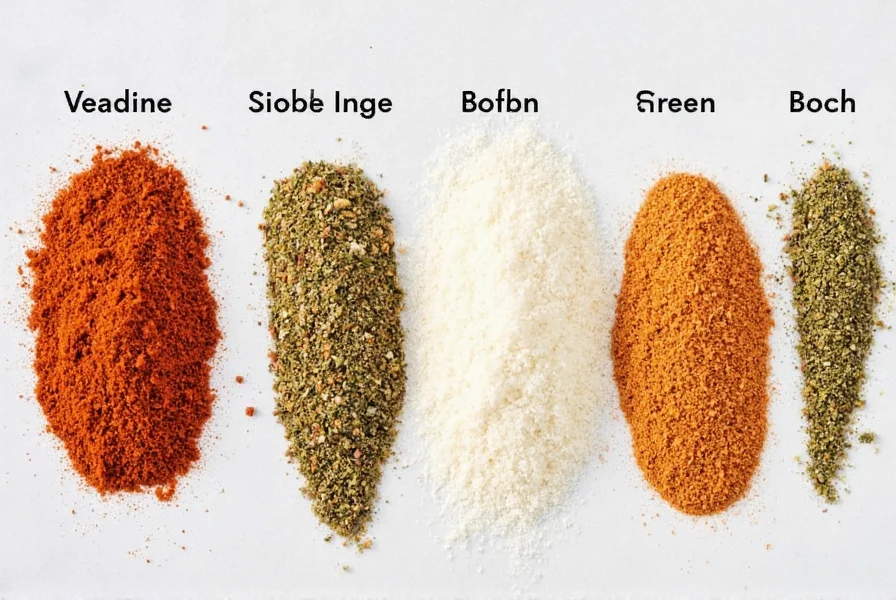











 浙公网安备
33010002000092号
浙公网安备
33010002000092号 浙B2-20120091-4
浙B2-20120091-4